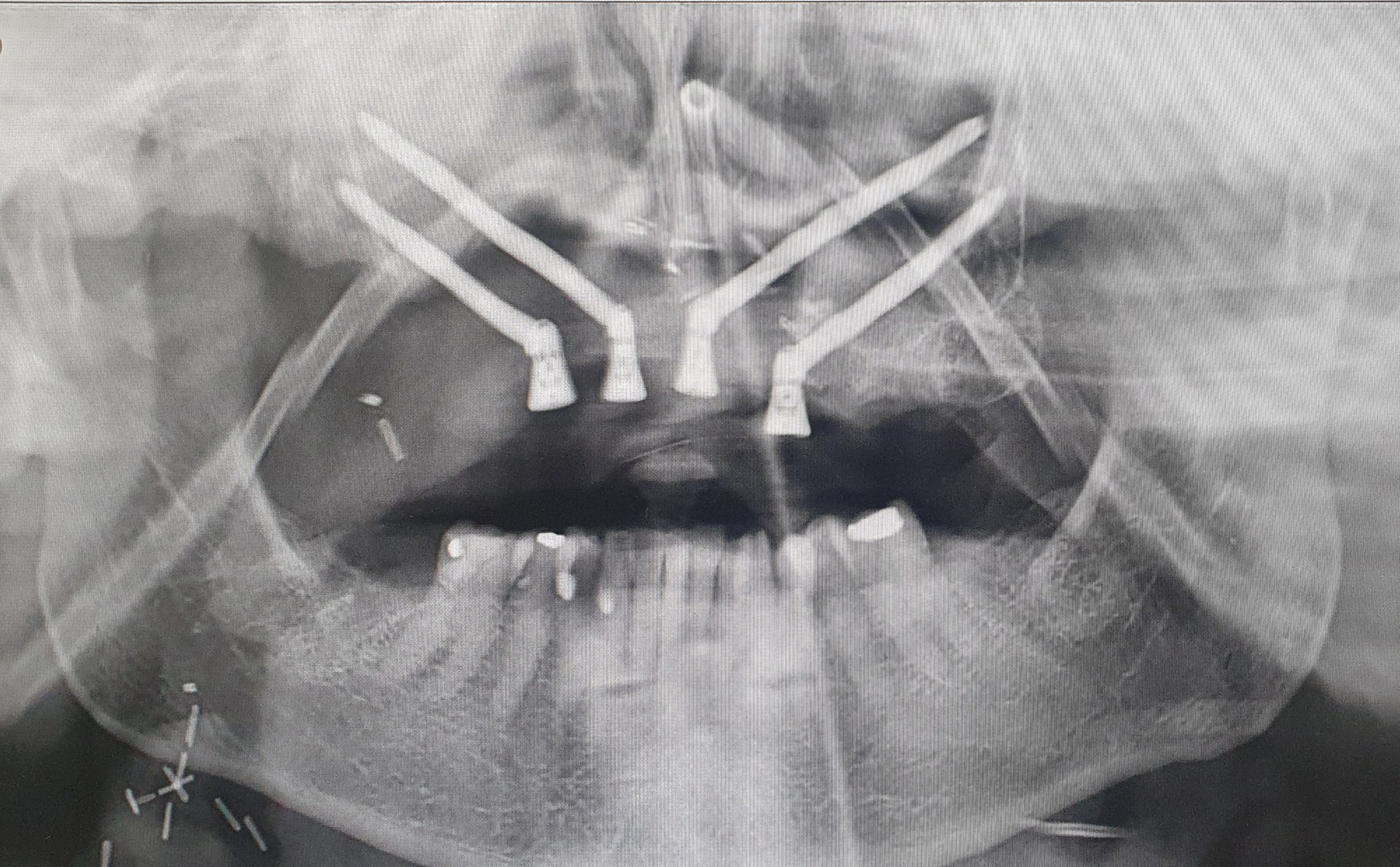 A maxillofacial cancer patient has been given a second chance at life after Lancashire Teaching Hospitals successfully performed the region’s first-ever ZIP flap procedure, which reconstructs 80% of a patient’s jaw.
A maxillofacial cancer patient has been given a second chance at life after Lancashire Teaching Hospitals successfully performed the region’s first-ever ZIP flap procedure, which reconstructs 80% of a patient’s jaw.
John Farnworth, an 81-year-old from Chorley, underwent the 12-hour surgery, after being diagnosed with cancer involving a large part of his upper jaw.
Had John not undergone the surgery, his Maxillary cancer would have spread and was life-threatening.
The surgery, which was led by Pavan Padaki, Consultant Maxillofacial/Head and Neck Surgeon, accompanied by Consultant Maxillofacial/Head and Neck Surgeon Shakeel Akhtar, involved taking away 80% of the patient’s upper jaw and then reconstructing it with a Zygomatic Implant Perforated Flap.
The surgery involved placing zygomatic implants - long metal implants - into the cheekbones on both sides, following the resection of the upper jaw.
Tissue was then taken from the forearm, along with the artery and vein, and then the skin was sutured to close the whole maxillary defect, with the zygomatic implant perforating this flap of tissue and protruding into the mouth.
The artery and vein supplying the flap of tissue was then sutured to the artery and vein in the neck under the microscope.
The Restorative team, led by Consultant Restorative Dentist, Dr Jenna Trainor, then fixed the dentures into the implants, which will greatly improve John’s quality of life.
Mr Padaki explained: “Reconstruction of maxillary defects can be quite challenging. In smaller defects, a dental obturator can be placed, which is essentially like a removable denture. But in larger defects such as this, a free flap reconstruction is desirable.
“Traditionally these defects are reconstructed with a composite bone and soft tissue free flap from the leg or hip, which have their own complications, in addition to the delay in dental rehabilitation affecting their quality of life.
“But this relatively new technique was pioneered by the Liverpool Head and Neck team in 2017, and we are glad that we are now able to provide this in Lancashire.”
Mr Padaki added: “We want patients to be able to go out, eat and drink without any problems, and ensure life doesn’t become a burden. Life may not be the same as prior to the diagnosis of cancer but it is vitally important it is as close as possible to functional life. That is the mainstay, and it’s good we’ve achieved that in this patient.”
John was delighted with the outcome and added: "I initially didn’t realise how serious it was, nor that the surgery would take 12-13 hours, but am glad that it went really well and the backup has been like clockwork. It has been a high-quality procedure, and I wouldn’t have thought this type of surgery was possible a few years ago. I'm well on the mend now, my neck and arm have healed well, and I am eating and drinking. I'm not doing a marathon yet, but thanks go to my wife, she looks after me well."
John will now undergo radiotherapy to complete his cancer treatment.
The photos are credited to Lancashire Teaching Hospitals Medical Photography Team.







